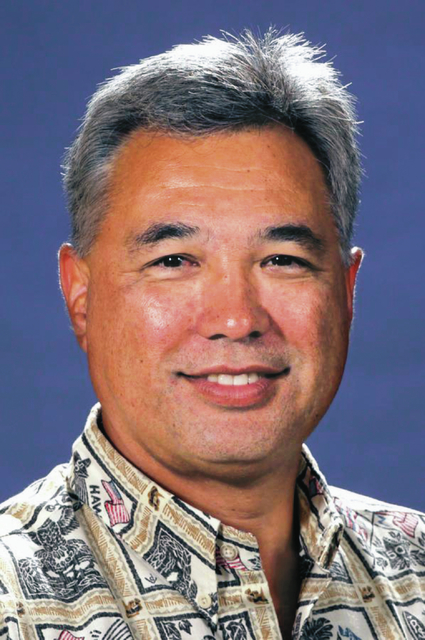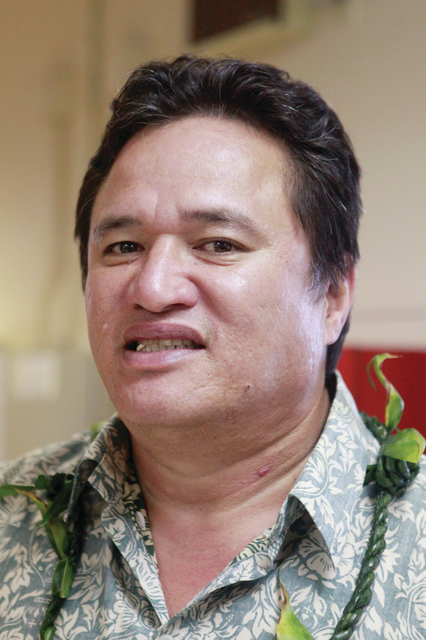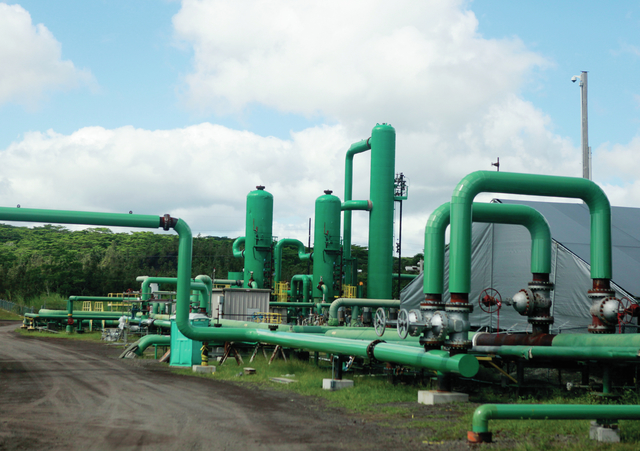Hawaii Electric Light Co. announced Tuesday that Ormat Technologies was selected to provide an additional 25 megawatts of geothermal power to the utility.
But where that power will be produced remained a secret.
After confirming the expansion would involve a new power plant and a new location, representatives of HELCO and Ormat, which operates Puna Geothermal Venture — the state’s only geothermal power plant — refused to release any further information to the Tribune-Herald.
Citing a non-disclosure agreement, HELCO President Jay Ignacio declined to say where the plant would be located, other than that it would be built in East Hawaii, prior to Ormat making its own announcement.
Ormat, which currently supplies up to 38 megawatts of geothermal power at its Pohoiki plant, was one of six bidders for the new contract, all of which proposed projects in the Puna region.
Mike Kaleikini, Ormat’s senior director of Hawaiian affairs, also said he was not authorized to comment prior to the company issuing its own statement but acknowledged the expansion will involve a new power plant.
“We’re putting together what our response would be, if any,” he said, after being pressed on the matter.
“I don’t have any further information I can share with you at the moment.”
The expansion, which requires negotiations between HELCO and Ormat and approval from the state Public Utilities Commission, is intended to help the utility replace its oil-burning power plants with geothermal energy.
HELCO said Ormat was selected based on criteria including pricing, design, financial stability and a “commitment to resolving all environmental issues” associated with geothermal production.
The selection of Ormat follows the issuance of a draft request for proposals, which was initially for up to 50 megawatts of geothermal power, in 2012.
Ignacio said the proposed expansion was cut in half when none of the bidders offered to build plants in West Hawaii, where power use is highest.
HELCO has said the expansion will help increase the utility’s use of renewable energy and lead to lower energy costs.
Earlier agreements with PGV that tied geothermal costs to the price of oil also are being renegotiated, Ignacio acknowledged.
But geothermal production has had a hard time winning over lower Puna residents because of unplanned releases of geothermal steam and hydrogen sulfide, and noise impacts.
In response to concerns from nearby residents, Hawaii County issued a request for proposals this month for a study on the health impacts of geothermal development. That study could take up to three years to complete.
PGV and the county also are being sued by Puna Pono Alliance, which opposes geothermal expansion in Puna, regarding nighttime well drilling at the power plant. The plant currently is drilling a new well to maintain production levels.
Attempts to reach a group spokesman for comment by press time Tuesday were unsuccessful.
Email Tom Callis at tcallis@hawaiitribune-herald.com.











